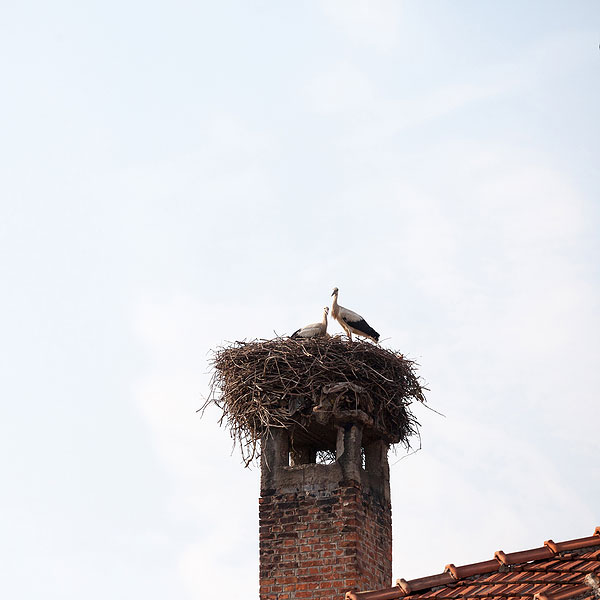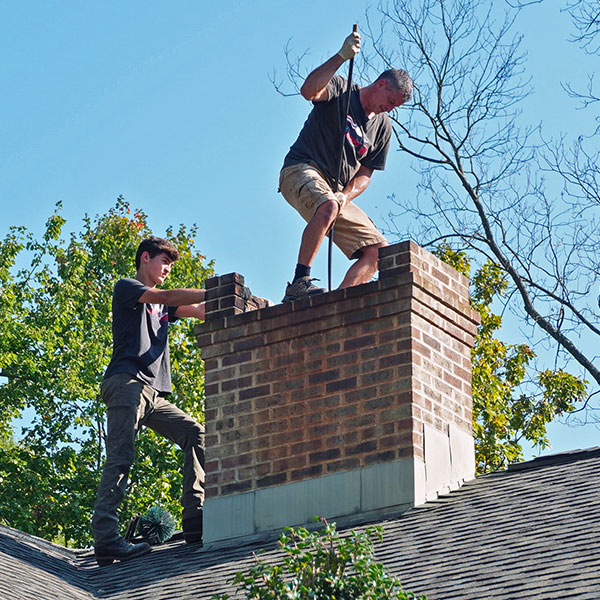Why Does My Fireplace Smell?
Have you noticed a foul odor from your fireplace after use or when it rains? Fireplace odor is a common problem, and in this post, we look at the causes and solutions.
 Why Your Fireplace Smells
Why Your Fireplace Smells
Foul odors can ruin the enjoyment of using your fireplace, but if you know the causes, you can take steps to reduce or eliminate the issue. Here are the most common reasons your fireplace may stink.
Creosote Buildup
Besides being a fire hazard, creosote buildup in the chimney makes your fireplace and chimney smell rancid. Creosote is a black or dark brown tar-like byproduct from wood burning. Using seasoned firewood reduces the smoke and creosote but won’t completely prevent it.
Moisture
Weather wears down your chimney’s masonry materials, causing moisture to seep in. Once water gets in, it’s possible for mold to grow, which can make your fireplace smell.
Excess moisture also damages the flue liner, making your fireplace less efficient, and putting you at risk of a fire.
Critters
A warm chimney presents an inviting home for critters like squirrels, raccoons, and birds. Once they get in, they make waste and often die in the chimney, creating an odor.
Leaves & Debris
Besides critters, leaves and debris can fall into your chimney, get stuck, and decay, creating a smelly odor.
Air Pressure
Airflow is crucial to a healthy and efficient fireplace. Poor airflow can cause smoke and toxic gas to spill into the house and leave your home smelling like a burned-out campfire days after you’ve used the fireplace. Poor air pressure can be caused by a faulty damper, too much insulation, window drafts, and running exhaust fans when using the fireplace. Poor airflow causes the odors that generally go up the chimney to flow back into your house.
How to Reduce Fireplace Odor
It’s normal for a fireplace to emit odors, but those smells should go up the chimney, not back into the house. However, you can take steps to reduce the chance that your home will smell after using the fireplace.
Install a Glass Screen
It’s normal for your fireplace to emit a smoky odor after use, but you can stop the smell from stinking up your house by installing a glass fire screen to confine it.
Install a Chimney Cap
As mentioned, animals, leaves, and debris that get into the chimney can cause odors, so it’s wise to install a cap to prevent this. Installing a chimney cap also adds another layer of protection against water damage and moisture.
Waterproof Your Chimney
Because moisture causes fireplace and chimney odor, consider hiring a professional to waterproof the chimney. Today’s waterproofing products last for many years, extending your chimney’s lifespan and reducing the need for expensive repairs.
Close the Damper
Close your damper when your fireplace isn’t in use to prevent drafts from coming down the chimney and spreading odors through your house.
Hire a Chimney Professional
The most effective way to deal with chimney odor is to hire a chimney professional to clean the chimney and remove any obstructions like leaves or animal nests.

Most experts recommend annual chimney cleaning to prevent creosote buildup and reduce the odor.
About National Chimney Cleaners
National Chimney Cleaners is the family-owned, go-to chimney and fireplace company serving New York, Long Island, Suffolk County, Nassau County, Connecticut, and New Jersey. When you hire us, you get a team of trained, certified, and experienced professionals who know their way around a fireplace and chimney.
Contact us today at 800-631-6177.

 Why Your Fireplace Smells
Why Your Fireplace Smells